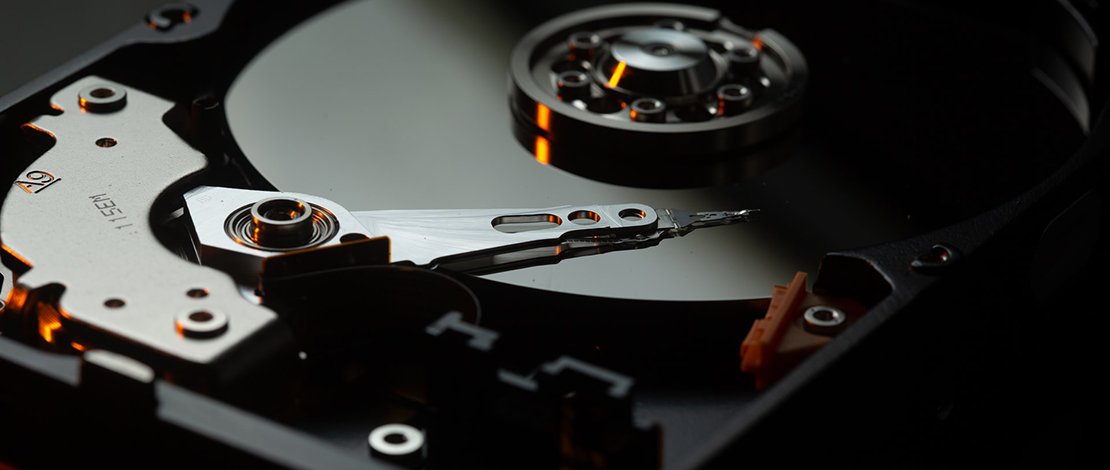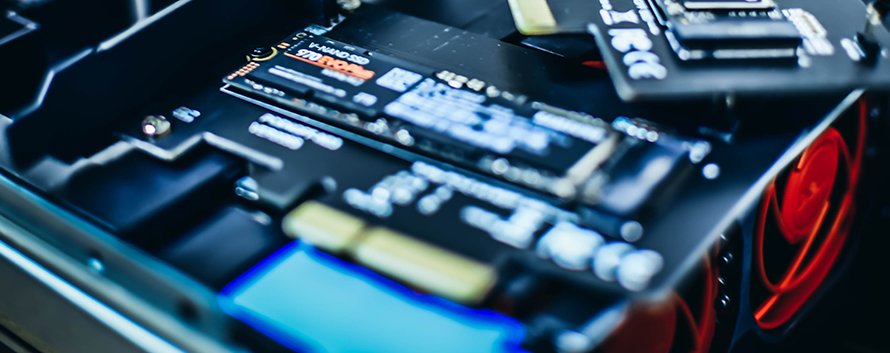SSD Vs HDD – Understanding SSD and HDD Nuances

Modern computers, laptops and even smartphones make use of various storage technologies, most of which can be labeled as a solid-state drive. It is assumed that SSDs are faster and better, but nothing is without trade-offs, particularly storage technology. Hard disk drives have their place, in both professional and consumer applications.
What is often considered a battle of HDD vs SSD devices, is more of a practical debate as to which of the devices serve the best purpose in a given scenario. Examining professional, consumer and gaming as the most likely use cases for storage will provide us with a detailed look at the minute differences in the SSD vs HDD conversation.
SSD Vs HDD Speed in Professional and Server Use Cases
More often than not, HDDs have been used as storage units in servers, if the data is to be preserved for a longer period of time, particularly when speed of access is unimportant. Some of the biggest factors in choosing hard disk drives over solid-state drives are cost and storage size.
The cost per gigabyte of a HDD is lower than an SSD, the difference growing larger as more storage size is required. This is very important in enterprise applications, where drives are bought in bulk and replaced in bulk.
SSDs or HDDs for Graphic Designers and Audio Professionals
Graphic designers, 3D modelers, as well as audio engineers or musicians, would all prefer SSDs due to multiple reasons. Firstly, all of these job positions make use of a lot of software which has many small files. The larger the number of files moved, the more trouble it would be for a spinning drive to read and write them, the more latency a user would experience.
Secondly, SSDs are easier to track with regards to errors and failure, having no moving parts and enabling complete software monitoring. Finally, SSDs are quiet, and a zero-noise environment is essential for audio professionals.
RAID Configurations for Increased Speed
RAID or Redundant Array of Independent Disks mode is a very popular subsystem where data is interleaved between multiple drives. Both HDDs and SSDs can be used in RAID configurations, but SSDs are preferred in professional use cases, particularly the ones mentioned above.
Interleaved data means that it is read and written faster because it is split into two or more stripes and written or read simultaneously to or from multiple drives. RAID 5 is the most common choice in enterprise solutions, due to the best ratio of speed and fault tolerance. One drive failing would not knock out the entire array.
SSD Vs HDD Lifespan in Professional Uses
SSDs are by design more durable than HDDs, due to having no moving parts. This is a mechanical advantage, meaning that SSDs are somewhat more drop-resistant, and cannot have a mechanical failure, for example the read/write head.
SSDs do get worn out, but only when data is written. That happens because SSDs have oxide components that hold electrons. When a state is changed (data is written), the oxide components get worn, which would eventually lead to them losing the ability to hold electrons, meaning data might be read, but definitely not written.
Modern SSDs have very predictable ways of wearing and great software to monitor it. Most of them make use of wear-leveling, a way of writing data to all parts of the SSD so that one part does not get worn out faster.
NAND Storage Type
The wear of an SSD also depends on their NAND storage type, namely SLC, MLC, TLC and QLC. These abbreviations stand for Single Level, Multi Level, Triple Level and Quad Level Cell, each of them describing how many bits can be stored in a single cell. The best SSD would be the SLC type. This type is the fastest and most durable, but also the most expensive and typically used in enterprise solutions. As we go up in the number of levels, the performance and durability drop, but so does the price.
These drives could be used to store data that would be simply read, with fewer write cycles because PLC would be even less durable than QLC.
HDD Lifespan
Hard drives, if used correctly, can last up to 5 years, or even 10 years with moderate usage and care. HDDs are often used as storage devices, to store data permanently. Typical use cases in professional environments are Network-attached storage solutions or NAS, with RAID configurations to increase reliability and to a lesser extent, speed.
HDDs are still the preferred choice for long-term storage, due to their price and storage size. External hard drives are also a choice when a lot of data needs to be saved and stored, again, due to storage size and price ratio.
SSD Vs HDD Gaming Speed – Active and Stored Games

Most modern gaming computers have an NVME SSD, which is the fastest type of SSD for gaming and even professional workloads. Some gamers, however, use SSDs to only store the games they play the most often. Actively, people play up to 3 or 4 games, with other games being stored elsewhere, often on an HDD.
SSDs have very clear benefits when it comes to gaming, especially in decreasing loading time. Some developers count on gaming computers having NVME SSDs, so they code their games to make use of that speed instead of RAM or VRAM. This, consequently, decreases load times, but that is not true for all games.
Some gamers use external SSDs to store games that are too large to be downloaded often. This is where the speed of the SSDs comes in handy when transferring the game back to the internal one.
There are use cases for hard drives in gaming rigs, especially for storing data, or rather, games that are not actively played but are among the favorites. They can also be used for storing data in general, with the system and frequently accessed files/games being on the SSD.
Hard drives might be replaced with PLC SSDs in gaming PCs, but these drives are yet to be commercially available, not to mention tested for durability and reliability. Data loss is a serious matter, for every type of user.
Conclusion and Summary – SSDs and HDDs Have Their Place
Whether a consumer, gamer, prosumer or enterprise user, both SSDs and HDDs have their pros and cons. Speed and monitoring enable SSDs to take the front seat in most scenarios, from servers to home PCs.
On the other hand, HDDs are used for long-term storage, in cloud storage, consumer PCs, as well as large enterprise data servers, typically in a RAID configuration, to prevent any data loss. Both have their place, and that might not change, given that hard drives are also being improved (Seagate’s HAMR and MACH.2).